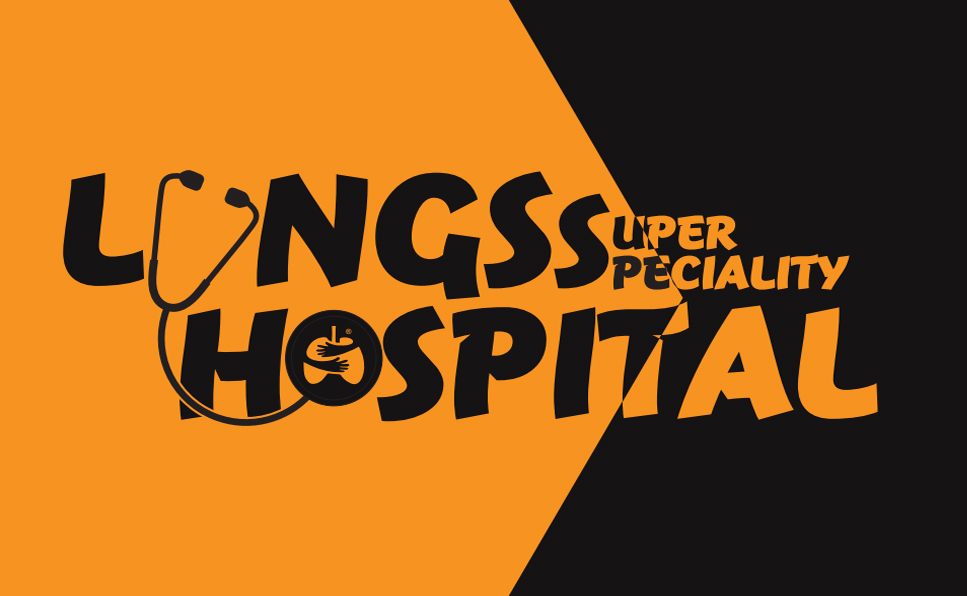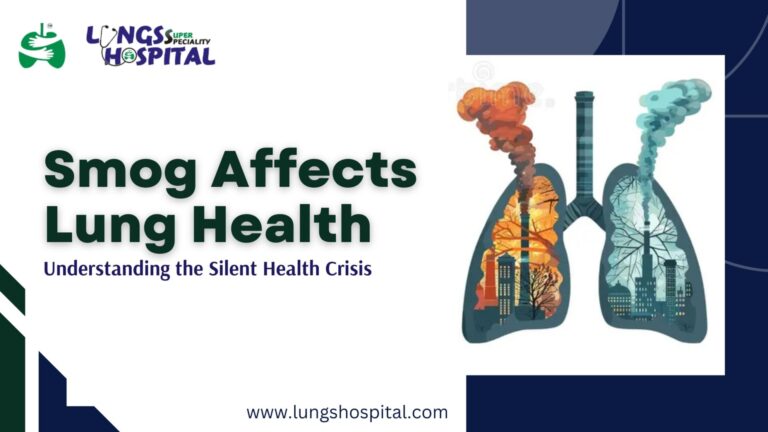Smog, the dense, hazy air pollution, is becoming an alarming health issue, especially in urban areas. It significantly impacts our respiratory system, particularly the lungs. This silent health crisis is not just a seasonal concern but a year-round threat that demands our attention. If you’re worried about how smog affects lung health, visiting a Lungs Hospital for timely checkups and advice is highly recommended.
What is Smog?
Smog is a combination of smoke and fog, caused by pollutants like vehicle emissions, industrial waste, and burning of fossil fuels. It is most noticeable in large cities, where air pollution levels are high. Smog contains harmful chemicals, including ground-level ozone, nitrogen oxides, and particulate matter, all of which can cause severe respiratory issues.
How Smog Affects Lung Health
- Irritation of Airways: Prolonged exposure to smog can lead to inflammation and irritation in the airways, making it difficult to breathe.
- Asthma Triggers: Smog is a common trigger for asthma attacks, especially in children and the elderly.
- Chronic Obstructive Pulmonary Disease (COPD): Long-term exposure to smog can worsen COPD, leading to a decrease in lung function over time.
- Risk of Lung Cancer: Studies suggest that prolonged exposure to air pollution, including smog, increases the risk of developing lung cancer.
- Reduced Oxygen Intake: Smog reduces the quality of air, which lowers oxygen levels in the bloodstream, causing fatigue and difficulty in performing physical activities.
Vulnerable Groups
Certain groups are more susceptible to the harmful effects of smog. These include:
- Children: Their developing lungs are more sensitive to pollutants.
- Elderly People: Age-related lung function decline makes them more vulnerable.
- Individuals with Pre-existing Conditions: People with asthma, bronchitis, or COPD face a higher risk.
- Outdoor Workers: Constant exposure to polluted air makes them more prone to lung issues.
Preventive Measures
- Stay Indoors: Limit outdoor activities when smog levels are high.
- Use Air Purifiers: Indoor air purifiers can help reduce pollutant levels.
- Wear Masks: High-quality masks can filter out harmful particles.
- Plant Trees: Trees act as natural air purifiers and can reduce smog levels in urban areas.
- Avoid Smoking: Smoking exacerbates lung problems caused by smog.
Conclusion
Understanding how smog affects lung health is crucial for protecting yourself and your loved ones. With preventive measures and timely medical attention, the risks associated with this silent health crisis can be mitigated. Remember, clean air is a fundamental right, and protecting our lungs is a priority.
FAQs
Immediate symptoms include coughing, shortness of breath, chest tightness, and watery eyes.
Yes, long-term exposure to smog can cause irreversible lung damage, especially in vulnerable groups.
Use protective masks, avoid outdoor activities during high-smog days, and maintain indoor air quality with purifiers.
Yes, children are more vulnerable as their lungs are still developing and more sensitive to pollutants.
Seek medical advice if you experience persistent coughing, wheezing, or difficulty in breathing during high-smog periods.



